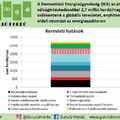Cypriot banks will not fully reopen any time soon. Not even next Tuesday. Capital controls are likely, and potentially not just in Cyprus. The simple morale of the story is that never ever keep money in a banking system/country which is broke….
The Cyprus story is changing fast, but there is already plenty to learn from it, and more will come.
Just as a reminder, Cyprus used to be (in)famous for tax evasion schemes (inside the EU but behaving like an offshore tax haven), has a financial system that is about 7 times its GDP, it is broke (it was lending money to Greece, among other things), and its banks are closed at the moment as there is no political consensus on how to sort out this mess. On the EU side, there is no political desire to use taxpayers’ money to fully bail out those (among others) who evaded taxes or “questionable characters” from Russia.
![BFuPtNvCQAAqcKZ[1].png](https://m.blog.hu/gu/gurulohordo/image/BFuPtNvCQAAqcKZ%5B1%5D.png)
Source:www.politicalworld.org
A few observations on this issue:
End of the off-shore story in Cyprus
- If banks reopen, there would be a capital flight. No one believes that the tax was a one-off, and in any case, even if it was, everybody knows that if everybody else tries to withdraw their money, they should try that too. This is the classical herd mentality of bank runs - the last person in the line will likely not get anything.
- This is why banks are unlikely to reopen, at least not without limits on withdrawal/transfers. Capital controls, in other words. It is also likely that further losses will surface as capital leaves, and the ECB/EU is unlikely to provide the liquidity to withdraw all the money. Currently people optimistically talk about 10% deposit withdrawals at opening. Dream on. It is going to be a lot higher - fingers will be hovering above the “enter” button just before banks accept transfer orders again.
- The longer banks do not reopen, the more likely it is that payments will be delayed and some firms/individuals may go bankrupt because of this. The EUR 100bn, which is roughly the size of deposits is not that small.
- An offshore center cannot operate with capital controls, so this role for Cyprus is effectively finished right now. There will be a migration of companies out of Cyprus, potentially benefiting other tax havens. Some of these are non-EU, some others are inside, like Luxemburg.
- So Cyprus is effectively broke, not a ‘little broke’, but big time. Because trust is gone, this is not a temporary liquidity problem, even if the usual EU self-defense mechanisms paint that picture. Thus the EUR 17 billion will be far from enough to save the day. Later on there will be write-offs as in the case of Greece.
- But substitutes will not be perfect, and increasingly, governments will not tolerate offshore or onshore tax evasion. It is an open question whether free international movement of capital will survive this. How about a 25% transaction tax if you transfer money to an (offshore) tax haven? Governments have plenty of ways to make life miserable for offshore centers, they just refused to use them so far.
- Also, there is going to be more talk about “tax harmonization” and taxing companies on the basis of where their activities are (usually a weighted average of sales, production and employees is proposed to determine the proportion out of global profits on which companies should pay taxes locally).
- On the personal income tax side, more countries will follow the US, which levies taxes on the basis of citizenship, and not residence.
 Source: acting-man.com
Source: acting-man.com
Your money, your risk
- The other big morale of the story is that never ever keep money in a banking system/country which is broke. This sounds so obvious with hindsight, yet…
- It is no use protesting that deposits should be “protected” (i.e. someone else should pay for the mistakes of your bank), especially if you are a large depositor. Depositors are in fact investors, and should be careful where they invest. If you have invested in a banking sector that was way too large compared to its country, paid high deposit rates and invested the proceeds into risky assets like Greek bonds, then the current tax rates proposed are in fact very generous…If there is no EU or other help, depositors would probably lose most of their money
- Deposit withdrawals from Spain and Italy are likely. The exact conditions of banks there do not matter (they are likely to be pretty bad in any case) – again, the classical bank run logic is that if you believe others take their funds, you take yours too.
- It is becoming obvious that there is no political will to construct an EU-wide banking union, let alone fiscal union. Italy and Spain would get some help in case of a bank run, but this would be limited. Haircuts (or “taxes”) on deposits are a distinct possibility there as well, despite the assurances that Cyprus is a one-off.
- The EU’s EUR 100 thousand bank deposit insurance limit is too high. This is worth about 3 years of per capita GNP (not every child will have a bank account, but more will in the future, exactly because of the insurance). This may put too much burden on governments if there is say even a 1/3 loss. A bank deposit insurance limit that is say one year GNP per capita would be more reasonable – but of course politically too low.
“One-offs” will be repeated (elsewhere too)
- The genie is out of the bottle, and more countries will be thinking about one-off wealth taxes in some form. The experience of Cyprus is unlikely be a happy one, but there will be political demand to soak the rich.
- There will also be political demand to effectively restrict capital movements in other countries as well. The elites may resist it, as they have done so far, but populist politicians may take up the cause.
- Speaking of politics, the Cyprus issue also has significant foreign policy ramifications with regards to Russia. It is a well-known fact that huge amounts of Russian money (some with rather dubious origins…) are kept in Cypriot banks, making up around 1/3 – ½ of all bank deposits in Cyprus (although official numbers are lower than this). Russia’s elite would like to avoid a tax on their Cypriot deposits, and would like German taxpayers to bail them out. That is a non-starter politically, but could still strain relations.
This is a new stage in the slow-motion train-wreck that is the Eurozone crisis. It is far from over.
If you liked the post, follow the Rolling barrel blog on Facebook!
Or subscribe to our newsletter!
A bejegyzés trackback címe:
Kommentek:
A hozzászólások a vonatkozó jogszabályok értelmében felhasználói tartalomnak minősülnek, értük a szolgáltatás technikai üzemeltetője semmilyen felelősséget nem vállal, azokat nem ellenőrzi. Kifogás esetén forduljon a blog szerkesztőjéhez. Részletek a Felhasználási feltételekben és az adatvédelmi tájékoztatóban.




